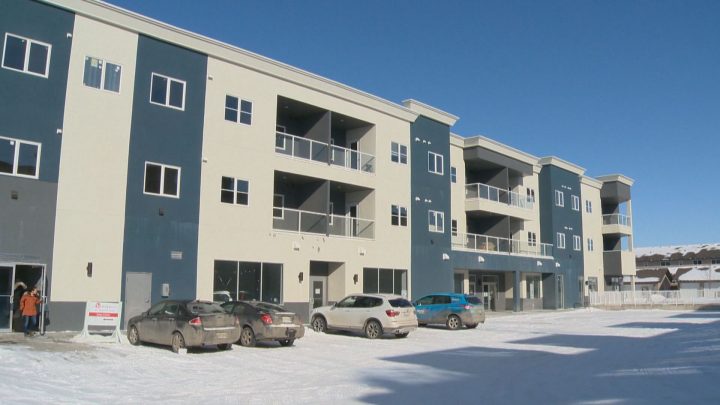The mortgage stress test needs to be changed to take into account market differences across Canada, the head of the association representing Saskatoon realtors said.

Jason Yochim, CEO of Saskatoon Region Association of Realtors (SRAR), said the current test is weighted towards heated markets and has had an adverse effect on western Canadian cities where the economy is struggling.
“(The stress test) was put into place mostly for consumer debt concerns, but when you look at the overheated markets of Toronto and Vancouver, that was a measure to cool some of that activity,” Yochim said.
“It’s unfortunate, but it would be nice if that could be regionalized so different markets in different cities across the country would be treated when it comes to the mortgage stress test,” Yochim said, adding lobbying efforts are underway to have the Office of the Superintendent of Financial Institutions (OFSI) make those changes.
Caught up in the stress test are buyers who would have previously qualified to purchase a low-end single family home.
Yochim said those buyers are instead likely to buy a townhouse or apartment condominium, or stay out of the market entirely.
The uptick in sales by those purchasers in multi-family units, however, has eased oversupply concerns.
Canada Mortgage and Housing Corp. (CMHC) reported on Feb. 7, that inventory levels have been reduced in multi-family units, and the agency changed its overbuilding outlook
“In the townhouse and apartment condominium market, that’s where we saw the greatest pressure downward on prices because of that oversupply,” Yochim said.
“With the stress test pushing some people into that market, it is helping to absorb some of that inventory.”
Foreclosures rise
One unintended consequence of the oversupply in multi-family homes over the past few years, Yochim said, was the “magnified downward pressure on market values.”
“The pricing for multi-family, especially apartment-style units, has been hit much harder than other housing types.
“Owners who have put the minimum down payment on these properties are at the highest risk of owing more than their home is worth.”
He said it is resulting in many condo owners being left “under water” with their mortgages if they purchased when demand was higher, resulting in higher foreclosure numbers.
WATCH BELOW: ‘Shocking’ house foreclosure numbers in Saskatoon

Market outlook
There are positive signs Saskatoon’s housing market might be rebounding, Yochim said.
Sales in January were at its second-highest level in five years, while the number of new listings was its lowest level since 2012. SRAR reported 199 sales for the month, with 555 new listings.
“When it comes to sales activity, it is a good indicator of the marketplace and what is happening out there,” Yochim explained, adding that months of inventory is also a good indicator of how the market is performing.
“When we look at months of inventory, it looks at the current rate of sales based on how many active listings there are in the marketplace.
“The lower that number is, that’s a good indicator that we’re clearing out inventory, demand is starting to catch up with supply, and it’s a healthier market when we see that.”
Yochim said lower overall inventory levels is also a good sign for the market.
“In time that will help spur some of that supply and demand ratio where if there is less inventory, people will start competing for what’s there, and hopefully that will put upward pressure on pricing.”
The biggest factor though, Yochim said, is a buyer’s confidence in their employment situation and the economy.
“Even if people are employed, but they’re uncertain about the future, they are going to hold back on making a move, whether it’s there first-time purchase or moving up to a different house,” he said.
“Things happen in the economy to create that confidence, and then people are more comfortable taking that long-term mortgage.”


Comments